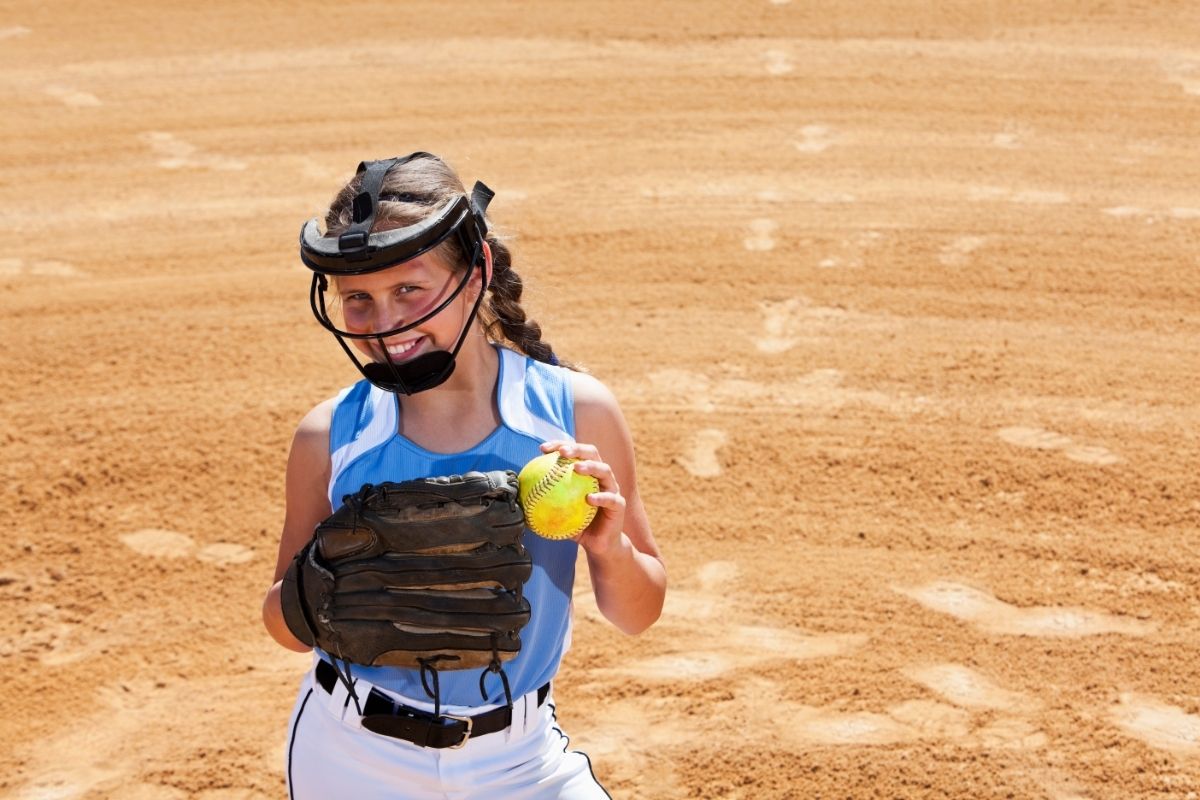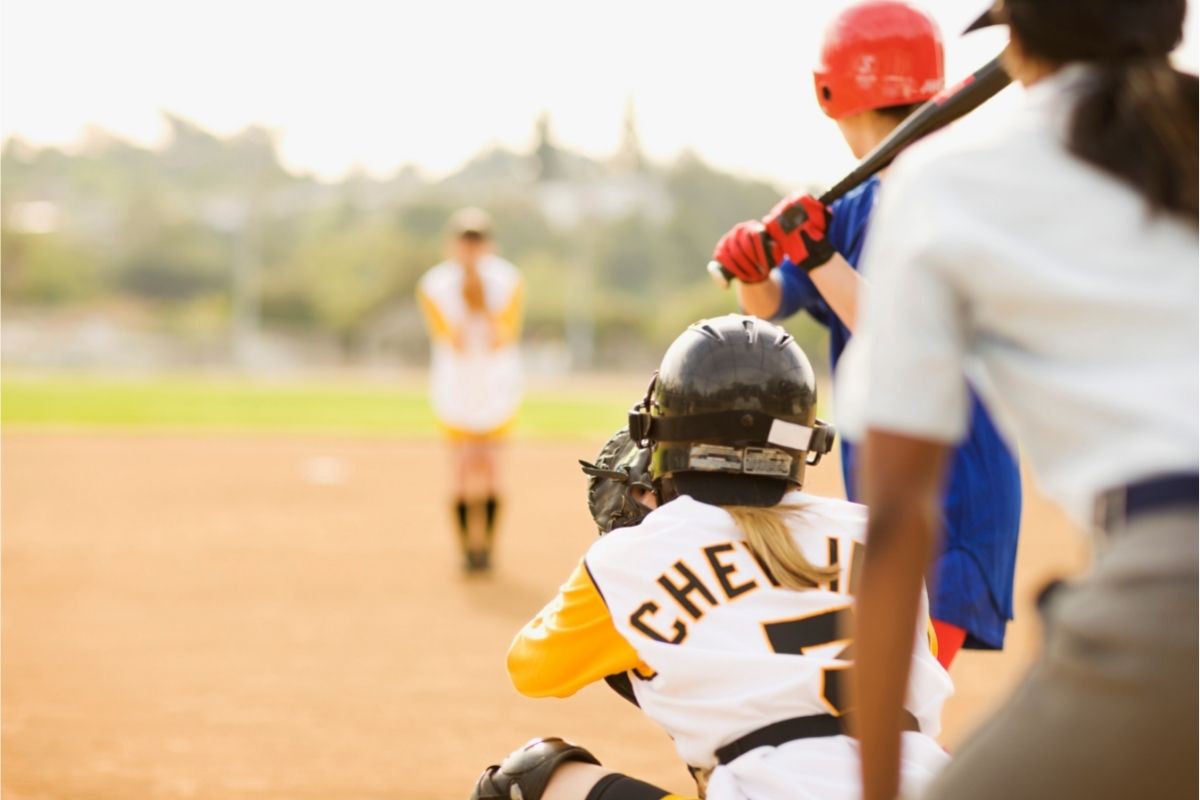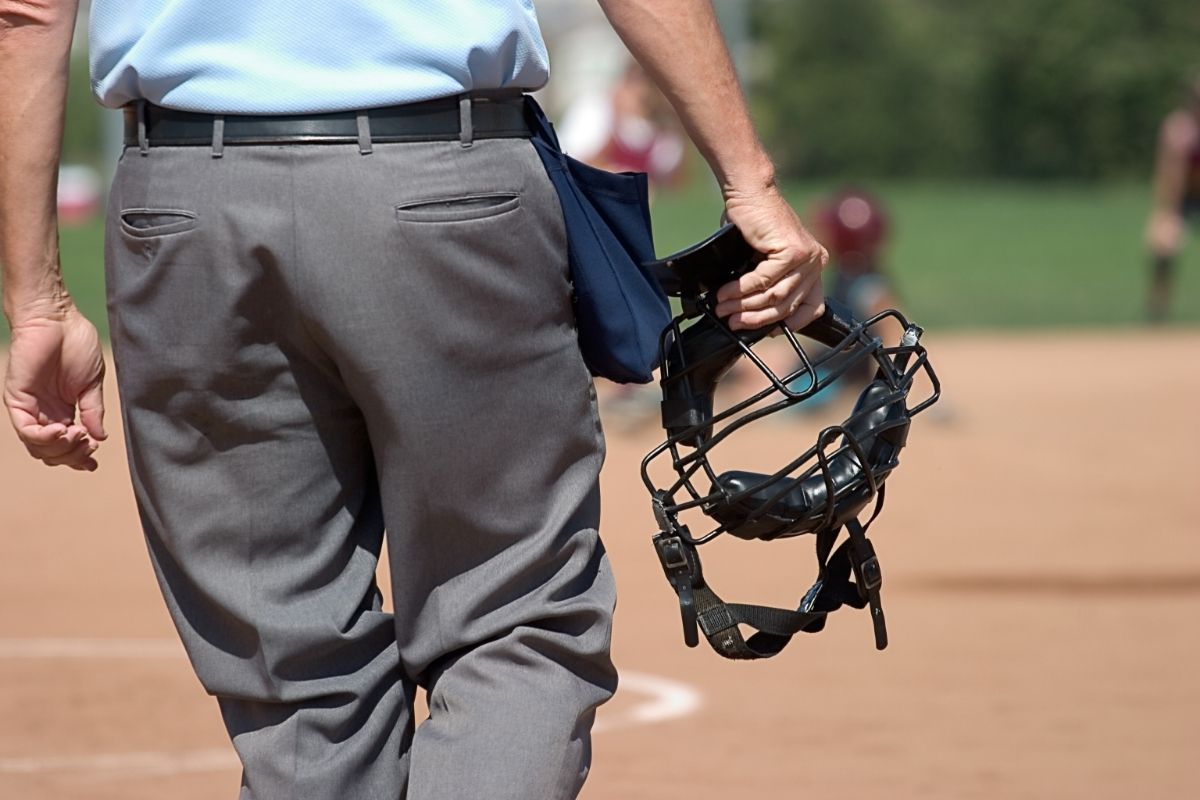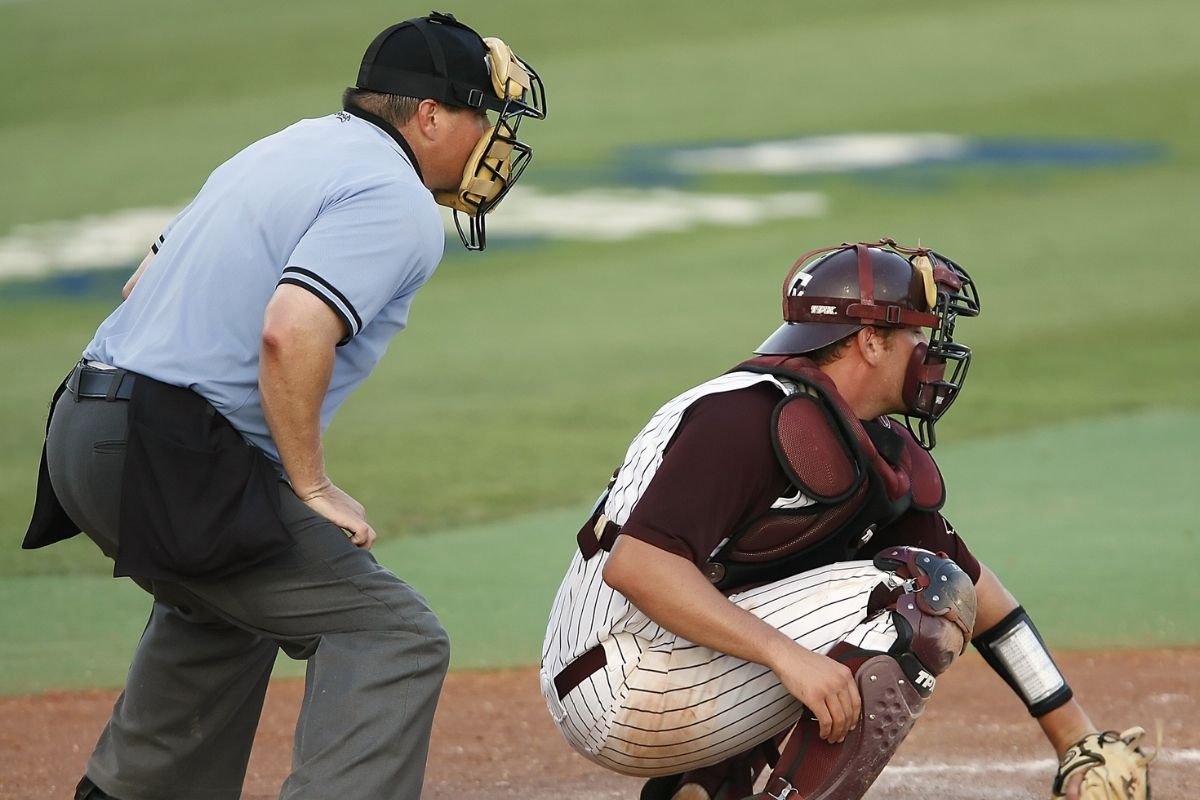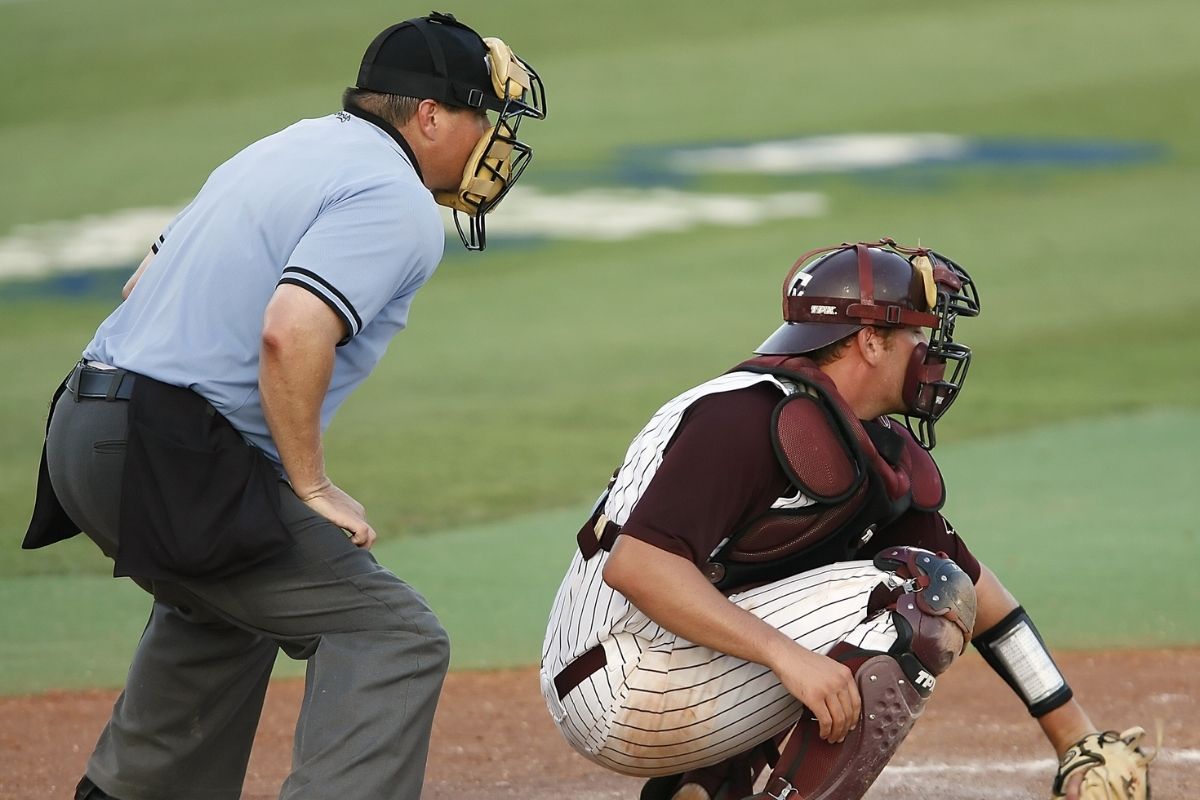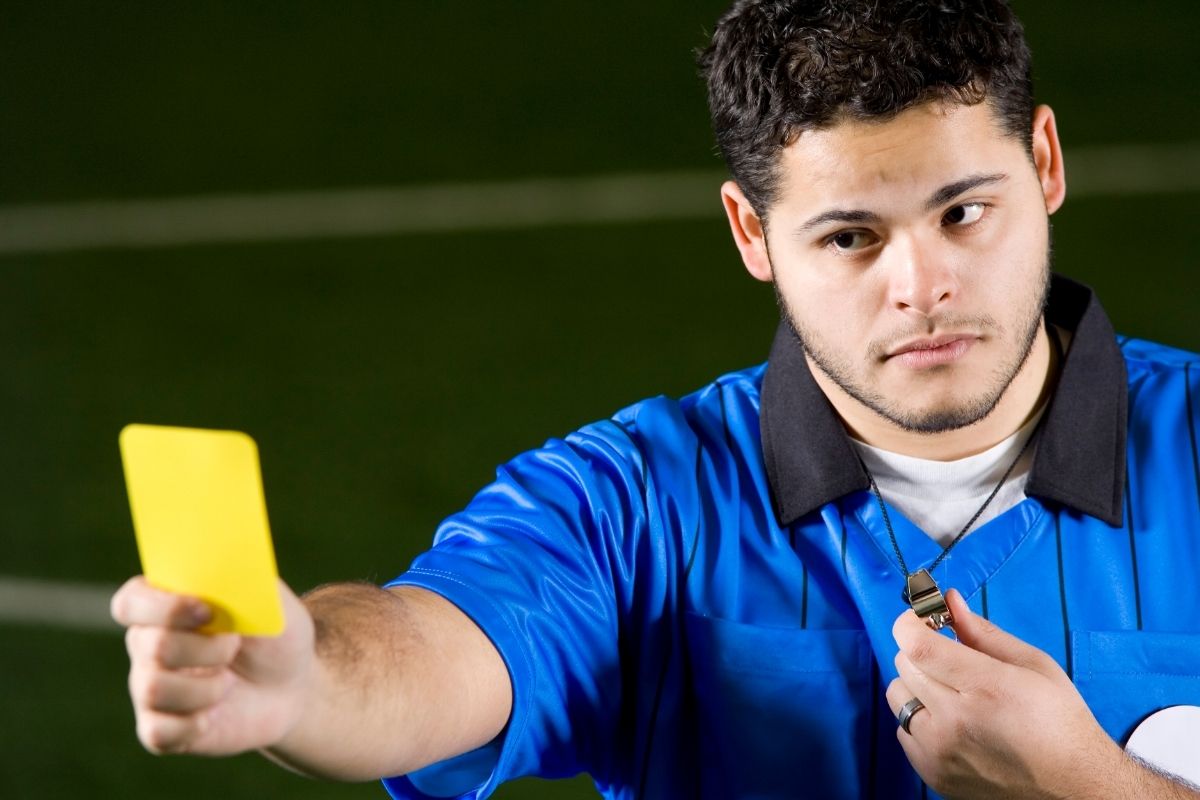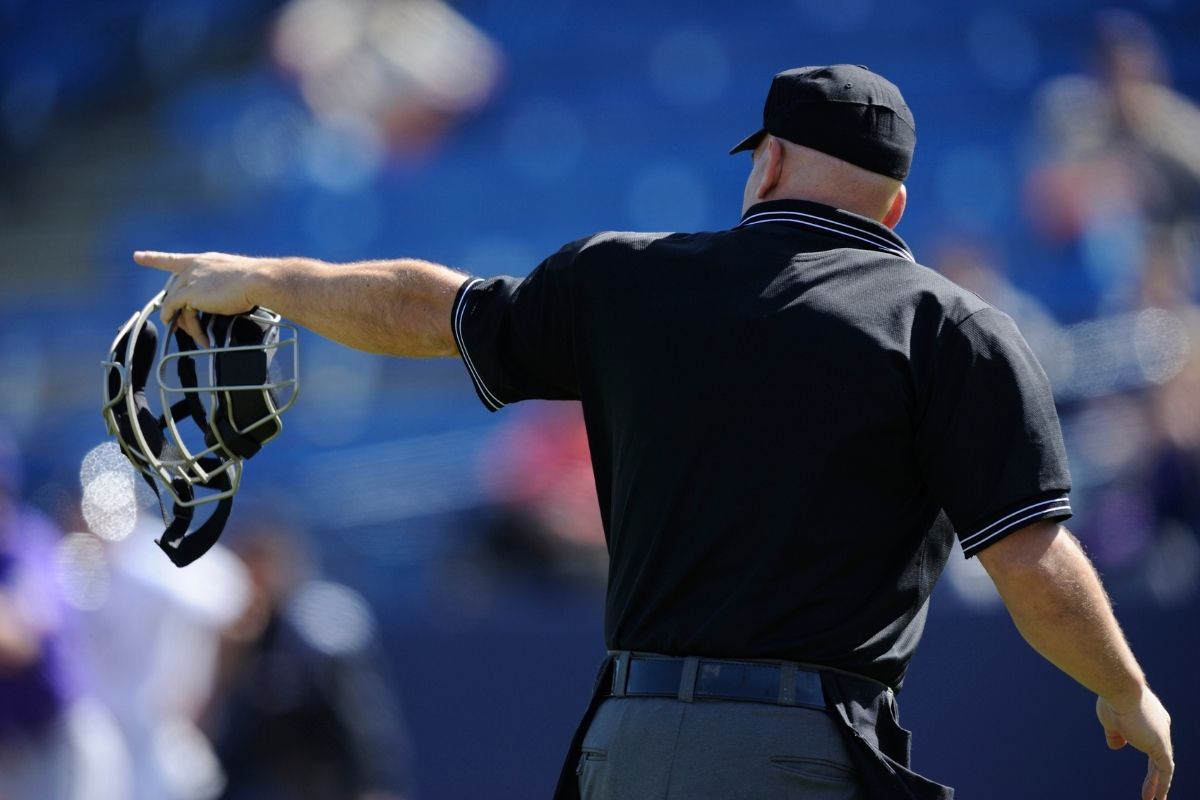A game of softball has a lot of elements in play at once. From the players to the umpires to the ball itself, things can get hectic pretty easily.
As a result, sometimes a player will make contact with an umpire.
Whether this is accidental or deliberate, it can come with some harsh consequences for the players involved.
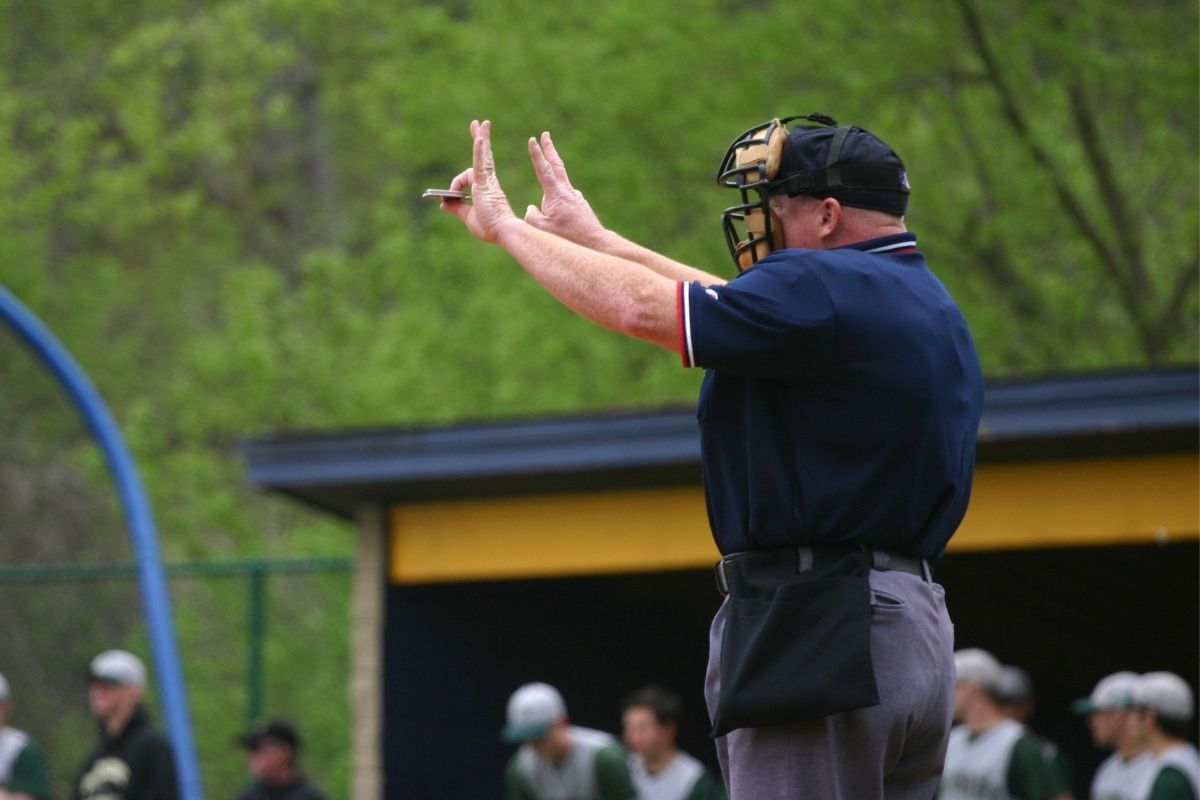

But what exactly happens if a player makes contact with an umpire in softball? Don’t worry, because we’ve got all the answers right here!
In this handy guide, we’ll take you through what happens when a player makes contact with an umpire, whether accidentally or deliberately, as well as the penalties they can face.
So read on, and you’ll learn exactly what happens when players and referees collide in a game of softball!
What Happens If A Player Makes Contact With An Umpire?
As we’ve already mentioned, the consequences of making contact with an umpire can be pretty severe.
Any contact with an umpire of a softball game is against the rules; this includes the plate umpire, base umpires, and any umpires in the outfield.
Deliberate physical contact against an umpire is considered a serious offense, and offending players can face major penalties as a result. Accidental contact, meanwhile, can be a bit trickier.
A couple of factors can come into play here – these include the nature of the contact (for example, a slight nudge isn’t comparable to a full-on knock), and how much of the fault lies on the player.
In general, however, all contact is considered an offense on the player’s part. Here’s a quick breakdown of what can happen when a player makes contact with an umpire.
Deliberate Contact
According to the rules of softball, any deliberate or inappropriate contact with an umpire can lead to a player being ejected from the field.
Once removed from a game, players are not permitted to return even if the ejection is ruled as unjustified.
Any aggressive or violent behavior towards an umpire is automatic grounds for ejection, and possibly even further sanctions such as a suspension.
Other direct intentional contact such as touching, grabbing, and pushing, can also cause a player to be sent off immediately.
Accidental Contact
This is where things start to get a bit complicated.
Accidental contact won’t always result in the player being ejected or otherwise penalized, but this depends on a couple of things.
First of all, if there is significant physical contact, even accidentally, then this is grounds for the player to be ejected. However, the umpire can choose not to punish the offending player.
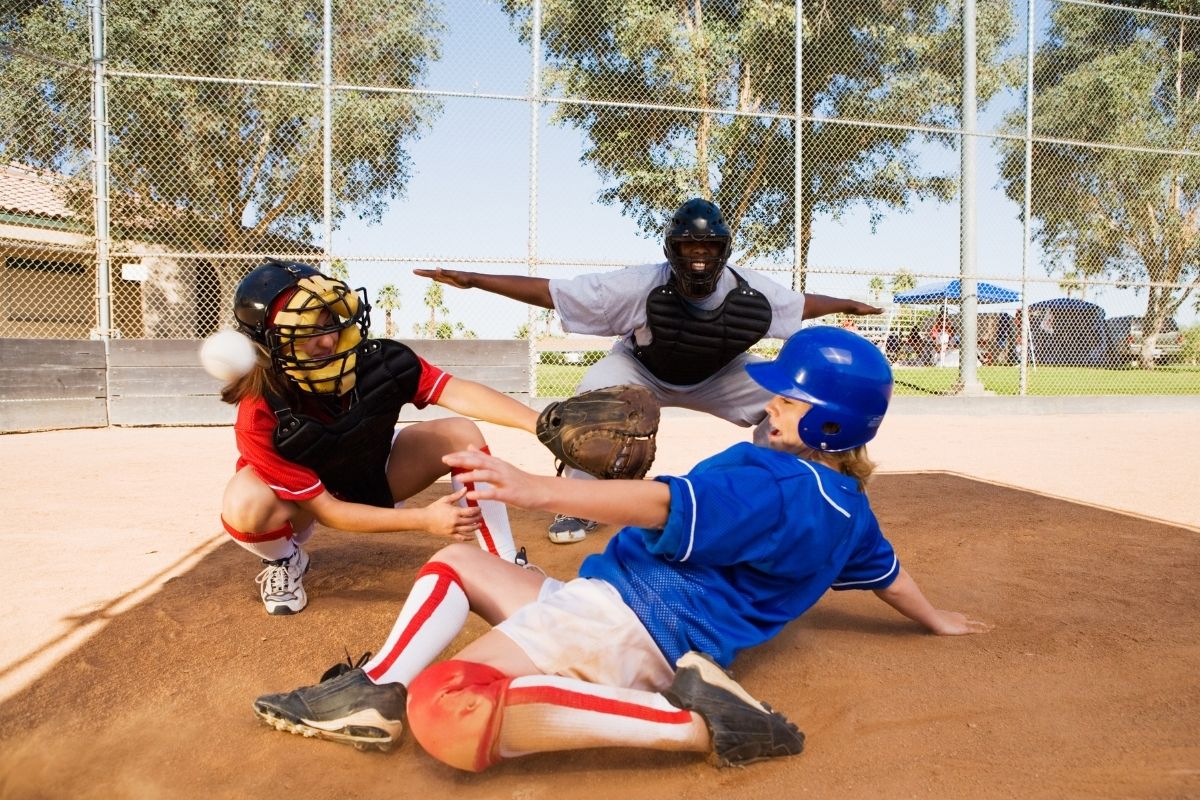

In general, minor inadvertent contact won’t be an issue; this includes things like a player brushing past an umpire when taking a base, or a slight bump between a player and an umpire in the outfield.
Still, if these are considered by the umpire to justify ejection, they are within their power to do so.
In cases of umpire interference (which we’ll look at later), the player will receive no penalty as they are not at fault.
This is only the case if the umpire is ruled to have interfered and if the contact was accidental on the player’s part.
If The Ball Hits The Umpire
Though it’s uncommon, the ball can sometimes hit the umpire. This isn’t really direct contact, so the rules here are a bit different as a result.
If the ball makes contact with an umpire but continues on its course, it’s still considered live and in play.
However, if the umpire stops the ball before it touches or passes an infielder, it is classed as umpire interference; in this case, the batting team is awarded a hit and the runners are awarded the next base.
Player Contact Vs Umpire Interference
Not all contact between players and umpires can result in the player being reprimanded.
In addition to minor accidental contact, players can also be excused if the contact is determined to be a result of umpire interference.
Umpire interference is classed as any obstruction to a game of softball by the umpire – this is similar to player obstruction, and (like we’ve already covered) can include blocking the ball or blocking a player from reaching or touching a base.
This obstruction doesn’t have to be deliberate to be classed as obstruction; if an umpire is unintentionally standing in the path of a player running to a base and the player makes contact with them, then the player won’t face a consequence as the contact was caused by umpire interference.
Of course, this only applies if the player didn’t deliberately make contact with the umpire. Additionally, excessive and preventable contact can still lead to the player being punished.
Can Players Argue With An Umpire?
Now that we’ve looked at the consequences for physical contact with a softball umpire, let’s take a look at what happens if a player behaves too aggressively.
Even if a player doesn’t actually make physical contact with an umpire, overly-aggressive behavior can still count as cause for ejection.
Just because there’s no physical contact it doesn’t mean that getting in the umpire’s face is okay!
The same rules apply if a player argues with an umpire’s call. Most umpires will listen to a player contest a call if they do it reasonably, but no umpire will let a player yell and argue with them.
Final Thoughts
Umpires play an important role in softball, and it’s important to treat them with respect.
Physical contact with an umpire isn’t just against the rules – it’s also unsporting and poor behavior.
Any deliberate physical contact with an umpire can and will result in the player being ejected; and while accidental contact has more leniency involved, an umpire still has every right to penalize a player for the contact.
Overall, a player that makes contact with an umpire can face some pretty severe consequences.
But as long as any contact is minor and unintentional, most umpires are likely to be fairly tolerant.
So just make sure to keep things gentle and you won’t encounter any issues!
- Can You Play Pickleball on Grass? Tips and Tricks - June 12, 2023
- Do Pickleballs Wear Out? Everything You Need to Know - June 12, 2023
- Can You Play Pickleball on Concrete? A Guide to Playing on Hard Surfaces - June 12, 2023

